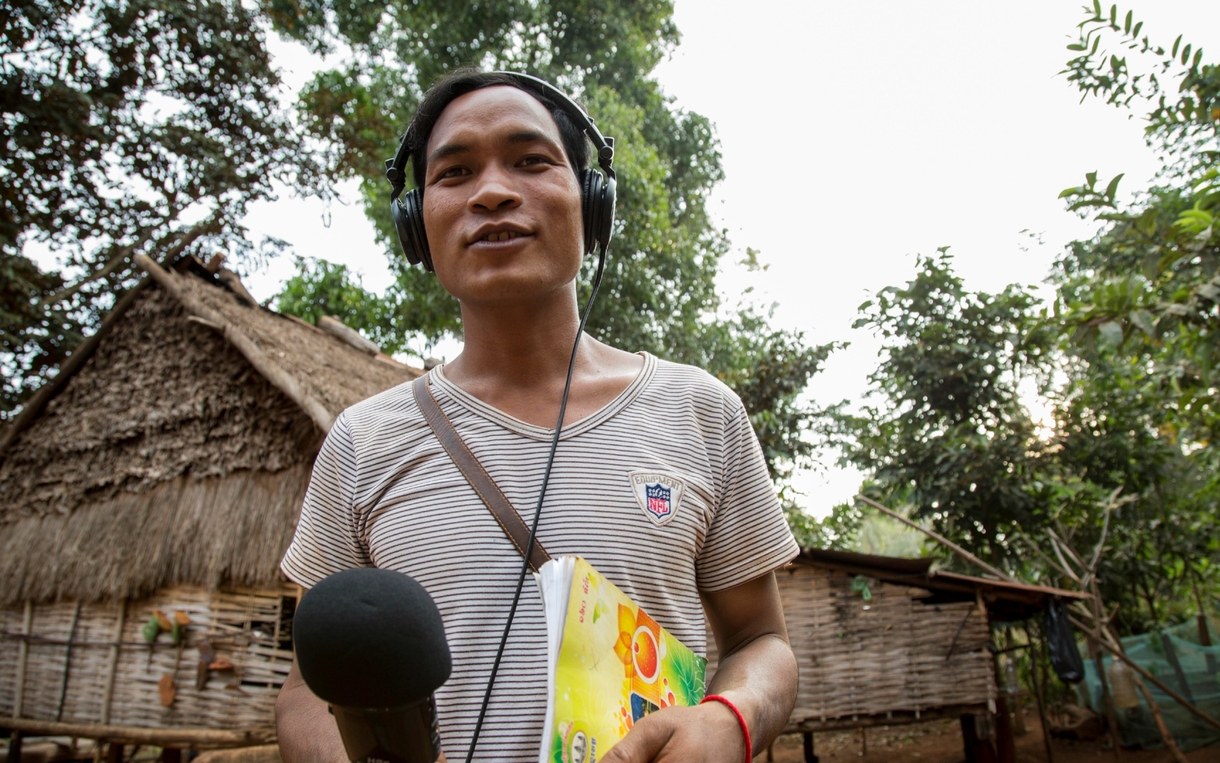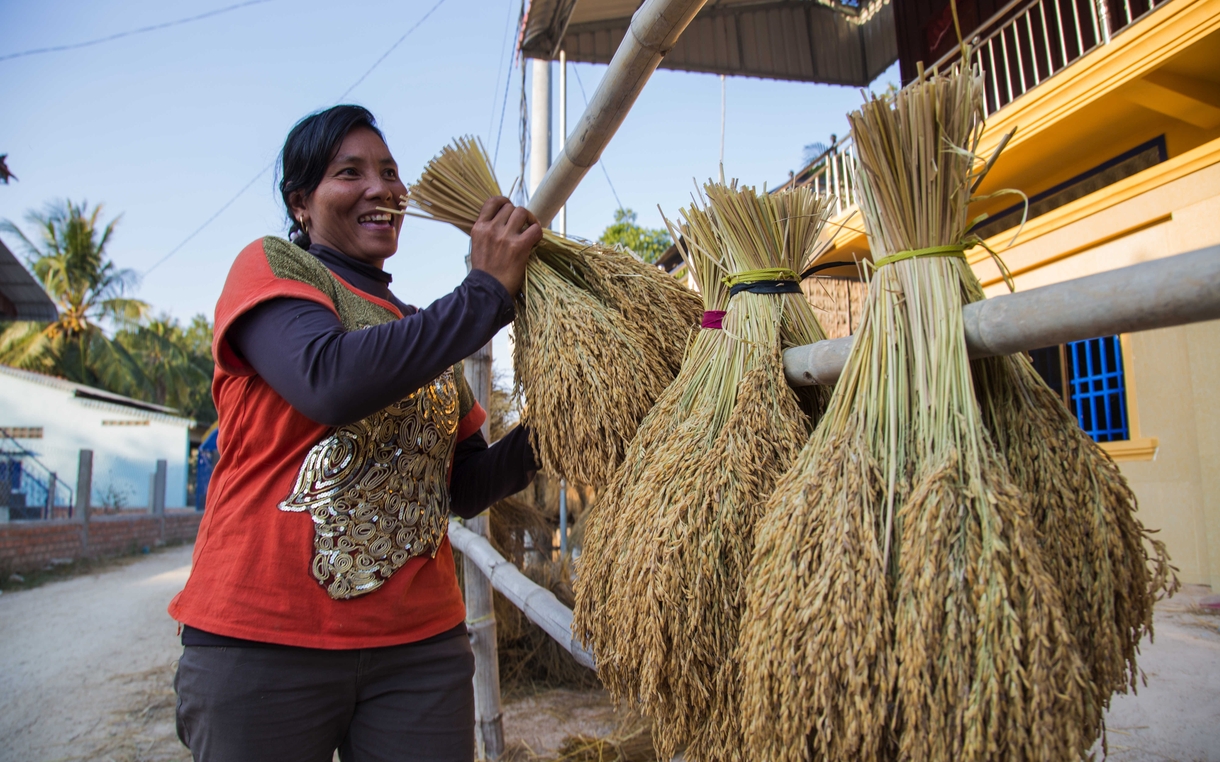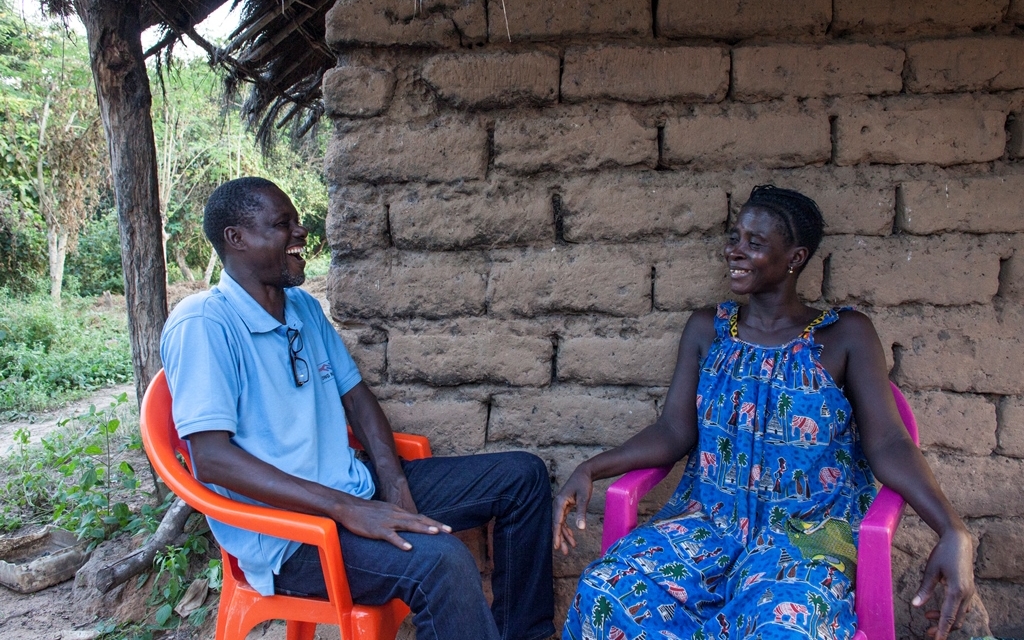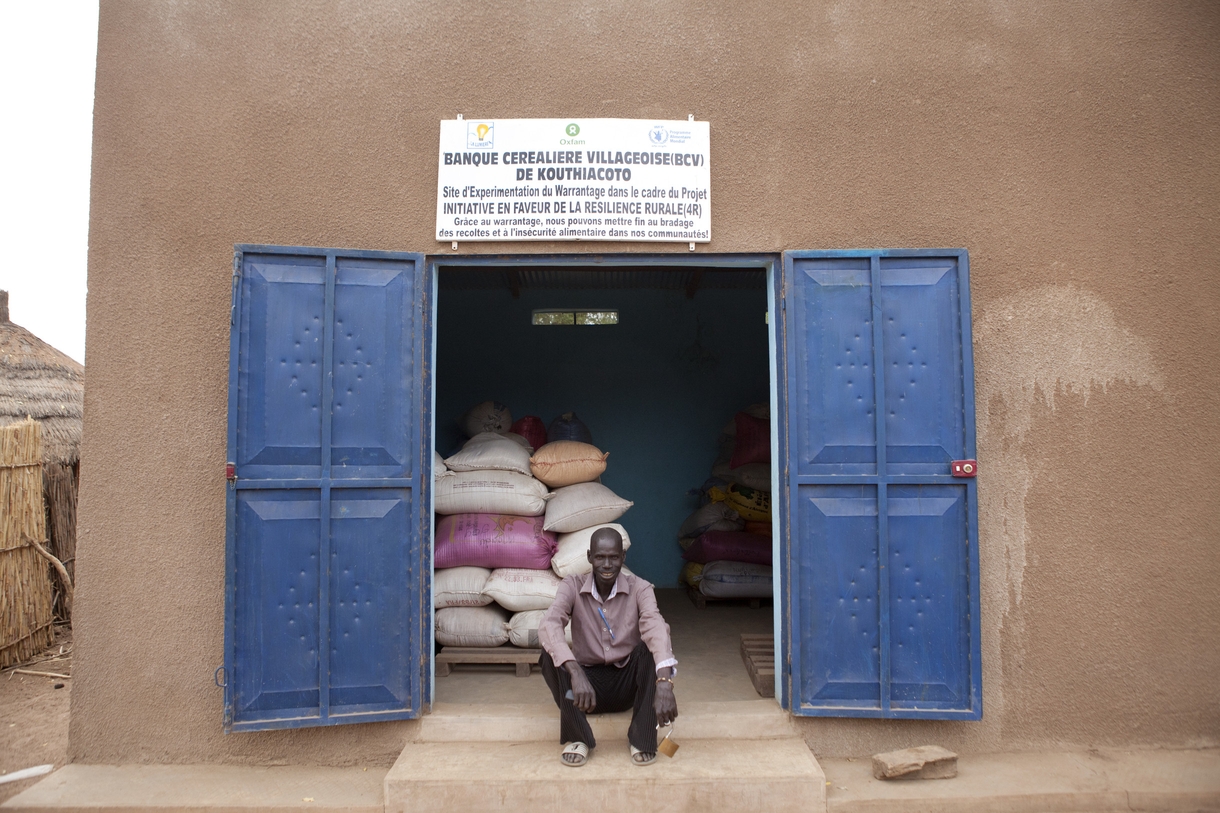Five poverty-fighting investments that should bring us all hope
 Bady Ndao manages the grain bank in his village, Kouthiacoto, in eastern Senegal. Photo: Jane Hahn/Oxfam America
Bady Ndao manages the grain bank in his village, Kouthiacoto, in eastern Senegal. Photo: Jane Hahn/Oxfam America
How a little knowledge, and inspiration, can make a difference in the lives of people.
Here it is, the end of 2015, a tough year in the poverty fighting and humanitarian business. All those wars, refugees and displaced people, earthquakes, and grinding poverty…when you mix them all up with bad reporting from the short-attention-span media and politicians with an agenda running for office, it can seem like everything’s gone to hell.
Don’t believe everything you hear! Here are five examples of people (and places) with whom Oxfam is working that show something different: When we invest in modest solutions, we can change the trajectory of a family or a town to something more positive. Here are five examples:
1. How a radio program in Cambodia is saving forests

When I was in northern Cambodia last winter I met some young people who listened to radio programs produced by one of Oxfam’s partners that explained in local languages the rights of indigenous people to protect their forests from industrial-scale agriculture.
A young man I met heard one of these programs, and started a forest patrol to monitor his village’s one remaining old-growth forest, where they worship their ancestors and gather food and medicinal plants. As one young radio reporter told me: “We need to report on the impact of losing natural resources so people know the consequences.”
I hope with this knowledge, these communities will understand their rights and protect their vital forest resources.
2. Learning new rice technique inspires growers in Cambodia

Rice farmers in southern Cambodia have always struggled to grow enough just to eat. Oxfam and our partners have helped teach farmers innovative ways to grow rice that can produce two harvests instead of one, sometimes more than doubling their yields.
One woman I met told me she used her increased income to rebuild her home, and is now planning to save for her children’s education. The chief of her village told me “People are planting twice a year and growing more. Most people have at least one motorbike, people have enough to eat, and everybody has a better life.”
3. Pumping water with the help of the sun

Here’s an example of using simple technology to save money in a dire humanitarian emergency: Basic solar technology and electric pumps help South Sudanese refugees in Uganda get enough water to survive. It’s an environmentally friendly way to pump water, and costs less than trucking, an important consideration given the UN has struggled to help more than 14 million refugees needing assistance around the world.
Oxfam staff in Uganda say three local communities will soon manage and maintain the solar systems, using them to meet their water needs in the future.
4. Standing up to the Ebola threat in Guinea-Bissau

Remember the Ebola hysteria in the US in 2014 and 2015? Well if you think you were scared, think about what it must have been like living on the front lines of the epidemic in West Africa.
Oxfam worked closely with organizations across the region to promote good hygiene as a crucial part of the international effort to stop the spread of Ebola. Along the borders of Guinea Bissau we enlisted the support of hygiene promoters to replace fear with knowledge and good hygiene: soap, bleach, proper latrines, and clean water for washing hands.
A year later, people remain vigilant, and Sierra Leone, Liberia, and Guinea—ground zero for the epidemic—are nearly free of Ebola.
5. Banking on grain helps a village fight hunger

Last March I visited a village in eastern Senegal where Oxfam is helping farmers with a comprehensive program to reduce the risk of crop failure, and get better prices for their grain. It’s an ingenious combination of finance, erosion control projects (in case of heavy rains), insurance (in case of inadequate rainfall), and a simple concrete structure to store rice, sorghum, and millet. Together they comprise Oxfam and the World Food Programme’s R4 Initiative, which recently expanded to Senegal from Ethiopia.
None of these projects are going to save the world tomorrow, but they all help vulnerable people become more self-sufficient, or put them in a better position to gain knowledge that will help them solve their own problems. All of you contributing to Oxfam, and helping us promote our work and objectives, are making these initiatives possible. Think of these examples the next time bad news threatens to overwhelm you. There are good things happening, they are changing things for the better, and you are part of making them possible.
2015 has been a year in crisis—but you can bring hope to families around the world. Help people lift themselves out of poverty with your tax-deductible year-end gift today.